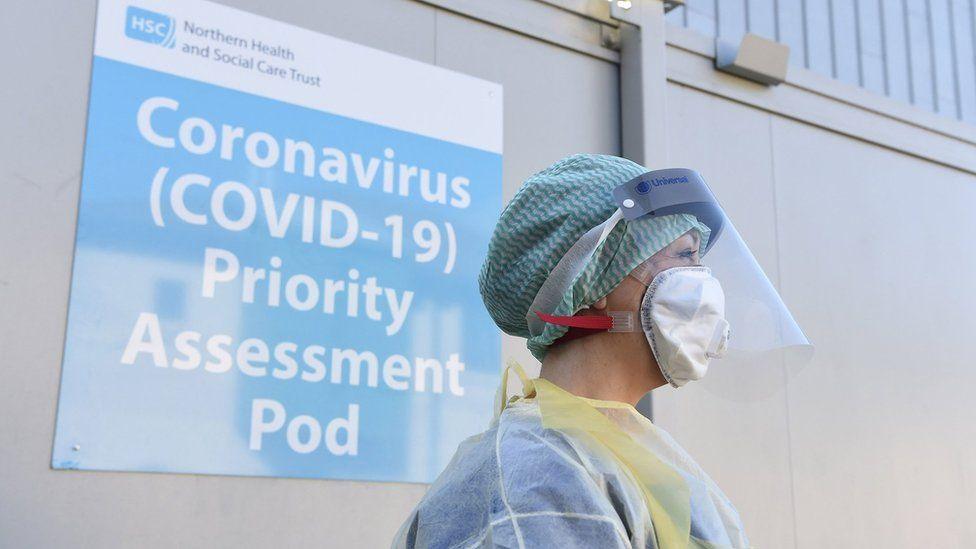Covid-19: Nearly 5,000 Covid-related deaths registered, inquiry told
- Published
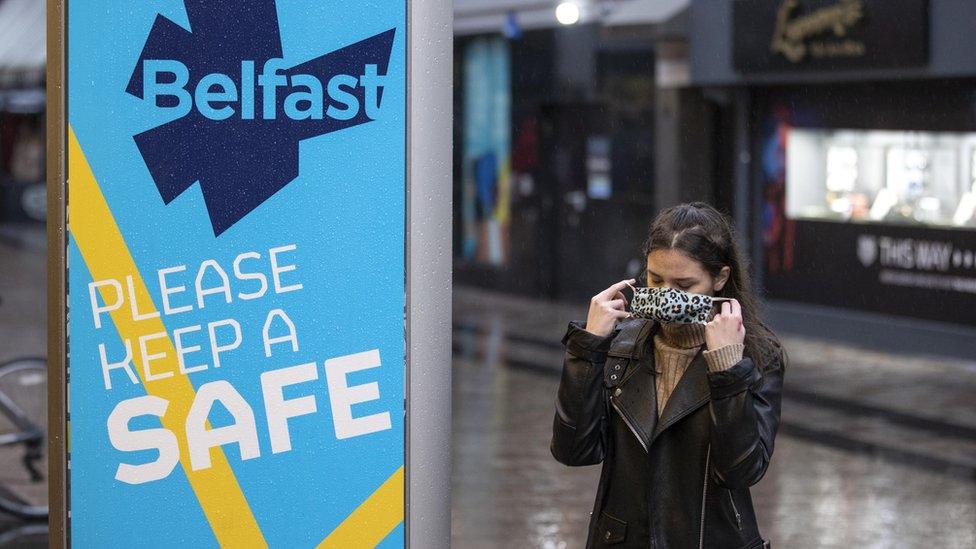
Covid-19 was mentioned on the death certificates of 4,900 people in Northern Ireland, an inquiry has heard.
The figure, from the Northern Ireland Statistics and Research Agency (NISRA), was given to the UK Covid-19 public inquiry that is sitting in London.
The inquiry has begun a preliminary hearing into decisions made by the Stormont executive.
It will assess how and why key decisions were made, with particular emphasis on the initial outbreak.
On Wednesday, Northern Ireland's Covid Bereaved Families for Justice group said it was important the inquiry looked at why Ireland was not considered a single land mass in relation to dealing with the pandemic.
A barrister told the inquiry that group had emphasised potential failures due to Northern Ireland and the Republic of Ireland not being treated as a single, epidemiological unit.
They also stressed the importance of examining what happened inside care homes and the transfer of older and very vulnerable people from hospital to their respective care homes.
Northern Ireland's "unique" political arrangement was raised several times, with the lead counsel reminding the inquiry that the executive had only been restored weeks before the pandemic was declared in January 2020.
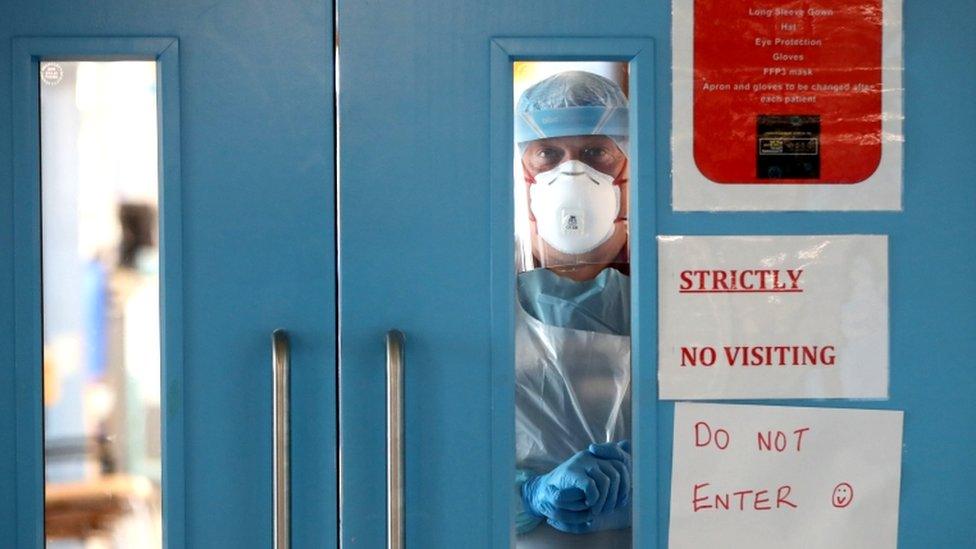
The inquiry is expected to scrutinise core political and administrative decision-making throughout the pandemic.
It will also attempt to establish what information was available in Northern Ireland.
'High death rate'
Wednesday's hearing is providing an update on which individuals and organisations have been successful in their applications to participate next year, when the inquiry will hear evidence.
During the opening, the lead counsel made representations on behalf of each of the main participants including Northern Ireland's Commissioner for Older People, bereaved families and the Trades Union Congress (TUC).
She said "the 75 and over age group accounted for almost two thirds of all deaths and almost three quarters of Covid-19 related deaths".
That, according to the Commissioner for Older People, "reinforced the extent to which the elderly were disproportionality represented in terms of those who died".
A barrister representing the commissioner told the inquiry that he had a series of concerns.
These included "the lack of sufficient PPE" in care homes; "ageist decisions" regarding the entitlement, for example, to ventilators and the "disproportionate deaths" in Northern Ireland's care home settings compared to the community and also, particularly, when compared to other parts of the UK.
"He is pretty clear on what happened. People died and their families suffered and continue to do so," she said.
"What he hopes this inquiry will do is to find out why that happened and how it happened. Why it all went so wrong and how it went so wrong."
'Rigorous gaze'
The inquiry also heard how an article in the British Medical Journal in August 2021 raised the question of why Northern Ireland had, at that point, such "a high death rate from Covid-19".
It said its current seven-day death rate per 100,000 people at that time was "more than twice as high as the wider UK and 10 times as high as the Republic of Ireland".
The chair of the inquiry, Baroness Heather Hallett, said if Northern Ireland was to have its own separate inquiry she would work closely with it and try to ensure "all issues are investigated fully and fairly".
The inquiry also was told of the need for the most "rigorous investigative gaze on the decision making process within Northern Ireland".
'Learn lessons'
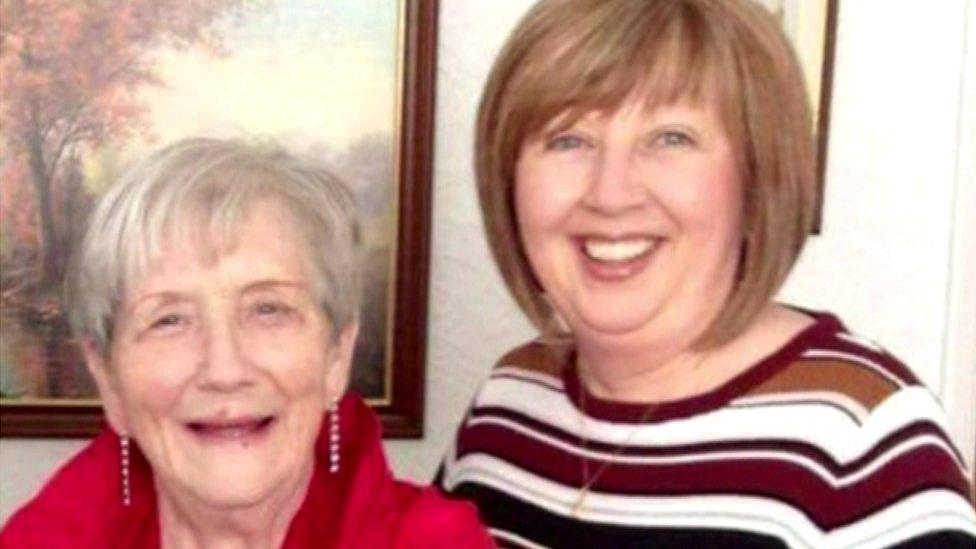
Brenda Doherty said her mum, Ruth Burke, never got a proper funeral
Earlier on Wednesday, relatives of those who died during the pandemic, spoke to BBC News NI.
Brenda Doherty's 82-year-old mother, Ruth Burke, was one of the first people in Northern Ireland to die with Covid-19 in 2020.
"On 20th March, that's when we found out mum had tested positive [for Covid-19]," Ms Doherty said.
"She seemed to be doing good and then on the 23rd of March, just after the prime minister announced the [first] lockdown, I got a phone call to see if I would agree to no unnecessary intervention because mum was not going to make it.
"Due to restrictions, we were advised not to go up and mum never got a proper funeral. She just got what I would call a committal."
She added: "We need to look at what decisions made during the pandemic impacted on us here and now and we need to know if things could have been done differently.
"It's great that we have the UK-wide inquiry but I would still call for a devolved inquiry here in Northern Ireland."
Martina Ferguson from Portadown, County Armagh, whose mother, Ursula, died in 2021 during the pandemic, said she was going into the inquiry with an "open mind".
She is attending the preliminary hearing on Wednesday with other bereaved families from Northern Ireland.
Ms Ferguson also said a "devolved inquiry was really important".
"The pandemic has impacted everybody, whether you were healthy or you weren't - it has impacted education, it has impacted children, all the vulnerable groups," she told BBC Radio Ulster's Good Morning Ulster.
"This inquiry is to find out what went wrong, what went right, how can we improve, what change can we look forward to."
Johnson WhatsApp messages
The inquiry is being broken down into different sections - or modules.
The preliminary hearing for module one, looking at how well prepared the UK was, took place last month.
Monday marked the start of the preliminary hearing for module two, which is looking at the political decision-making.
Counsel for the inquiry, Hugo Keith KC, said it would look at whether lives could have been saved by introducing an earlier lockdown at the start of 2020.But he also said it would assess the quality of advice ministers received, and whether too much weight was given to modelling.
On Monday, the inquiry asked to see Boris Johnson's WhatsApp messages during his time as prime minister as part of its probe into decision-making.
- Published1 November 2022
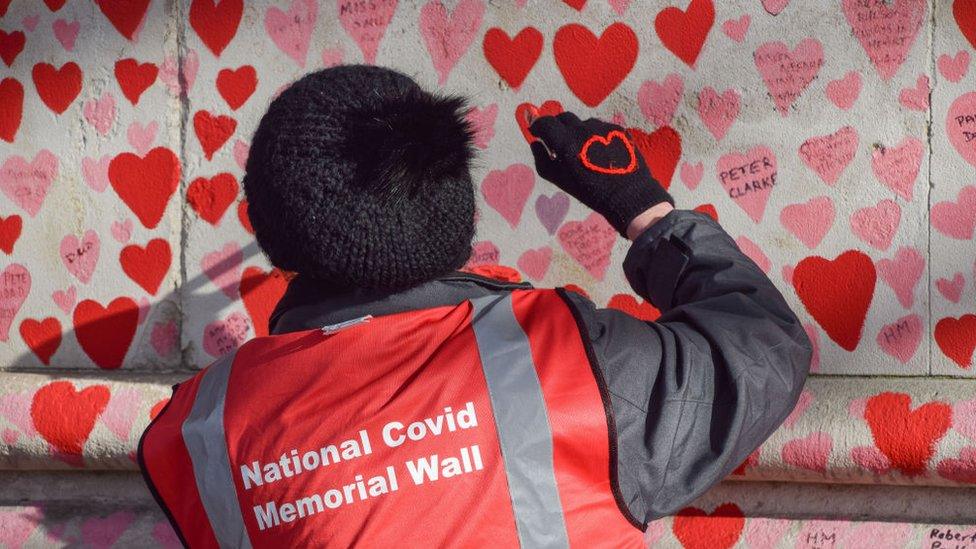
- Published31 August 2022
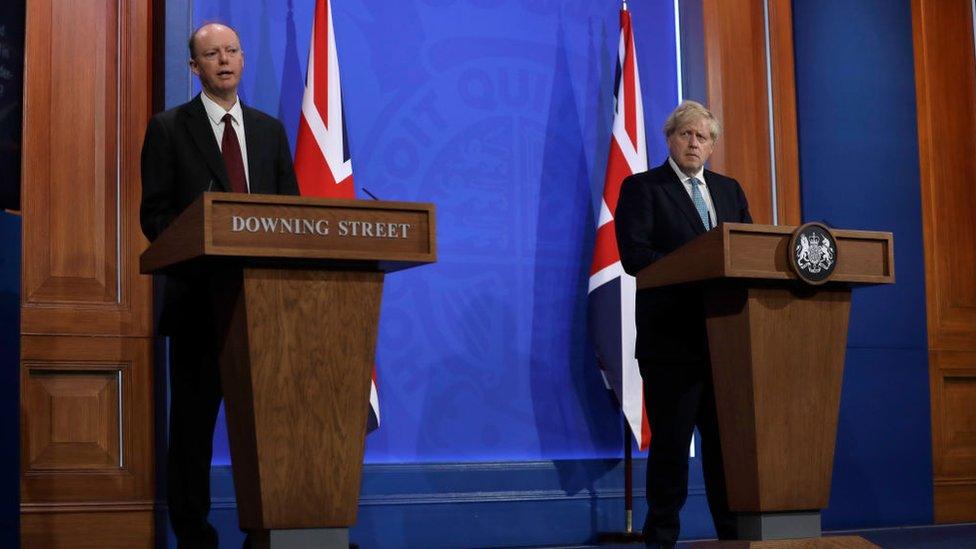
- Published21 July 2022
